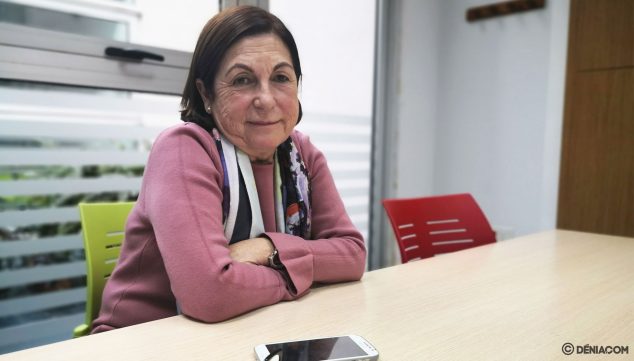Personal stories of fighting cancer in Dénia: Amunt's work
Every year around 750 new cases are detected in the Marina Alta. How is cancer tackled in our environment? February 4 marks the International Day of the fight against Cancer, and for this reason we speak with Isabel Llorca, president of the association Amunt Against Cancer. We collect information about the state of care in Dénia, Amunt's work and the personal stories that live each day in the association.
Amunt Against Cancer has helped to get wigs, wheelchairs and benefits for many people. Has cost trips to hospitals reference, housing rentals that could not be paid, and food in extreme situations. Isabel Llorca explica que «siempre que se detecta un caso de cáncer en una familia, la situación económica empeora, bien porque el enfermo no puede trabajar, bien porque necesita un cuidador y se generan gastos importantes». Así que en Amunt intentan ayudar en situaciones graves todo lo que pueden. Son una asociación autónoma con libertad para dar su fondos, y se financian con la aportación de sus socios y con la organización de actividades solidarias, como la caminata y la cena que realizan cada año.
«Primero miedo y aceptación, después fuerza y lucha»
In this video, several patients tell their personal experiences. How they have lived their illness and how they want to help other people with their testimony.
Throughout this process, Amunt tries to give advice, means and unconditional support to the sick. According to Isabel Llorca, they want to "cross the disease from the patient's hand", supporting, giving human warmth, facilitating the path. "The reward and satisfaction are enormous, and in fact, many sufferers become volunteers." As their motto says, "Where the law does not reach and the administration does not arrive, there is Amunt."
How the road starts
Almost whenever there is suspicion of a tumor, the patient goes to the surgeon, a biopsy, a CT scan is done, and a resonance may also be seen to see the extent of the disease. Then he refers to the oncologist so that he values everything. Normally, the patient is usually treated at the Dénia Hospital, although sometimes, the patient decides to be treated at another hospital; then Amunt provides you with all the information you need about the paperwork. Chemotherapy treatment is available at Dénia Hospital, but radiotherapy is given in Benidorm. In Dénia there is also a palliative care service to increase the quality of life of patients, but there is still no possibility of patients joining clinical trials.
The "patient empowerment"
Spend time with them in the consultation, devote attention so that they know everything about their disease, that they feel safe and that they can decide. This is to empower the patient, give him the information and tools so that he can "manage" the disease as well as possible. Isabel Llorca explains this concept to us as something very important that should be applied in hospital centers.
The importance of research
In Amunt they are up to date with the advances, especially in order to mediate and refer patients to the main institutes that set them in motion. For example the INCLIVA, Health Research Institute. With their mediation, they get leading treatments such as immunotherapy, liquid biopsy or brachytherapy. On Saturday, February 8, Amunt celebrates its third solidarity dinner, in which they will donate an important amount for pancreatic cancer research. "It is a tribute to those who have overcome cancer, to those in battle, and to those who have not been able to."
